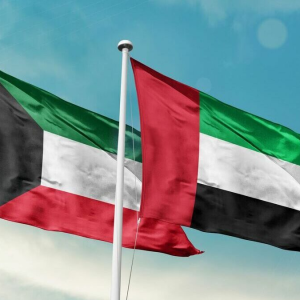The United Arab Emirates has fined a well-known exchange house Dh200 million after discovering serious violations of the country’s anti-money laundering law.
This move shows that the UAE is taking financial crimes seriously and is actively cracking down on companies that do not follow legal rules related to anti-money laundering (AML) and counter-terrorism financing. UAE hits exchange house with Dh200 million fine for anti-money laundering law breach, highlighting strict enforcement of financial regulations.
What Did the Exchange House Do Wrong?
According to the UAE’s Ministry of Economy, the exchange house was involved in serious breaches of AML laws and regulations, although the name of the company has not been made public.

Officials explained that the business failed to:
- Properly identify risks related to money laundering.
- Create clear internal policies for preventing illegal financial activity.
- Report suspicious transactions on time or at all.
- Show enough staff training in compliance practices.
The Ministry also said the exchange house did not cooperate with the financial investigation unit during audits and failed to take proper corrective actions when warned.

UAE’s Zero-Tolerance Policy on Money Laundering
This is not the first time the UAE has taken action on such issues. Over the past few years, the country has strengthened its financial monitoring systems to meet international standards set by the Financial Action Task Force (FATF).
The Ministry of Economy has promised that no one will be above the law and that firms failing to comply with AML rules will face tough penalties—including license cancellations, suspensions, and major fines like this one.
Why This Fine Matters to the UAE Economy
This Dh200 million fine is one of the largest of its kind in the UAE and sends a strong message. It proves that:
- The UAE is serious about clean financial operations.
- The country is working to gain global trust in its banking and business sectors.
- Companies must follow the law strictly, or face harsh consequences.
The UAE has been listed on the FATF’s “grey list” in the past, which means more international scrutiny. But with actions like these, the country is proving its commitment to moving off that list and showing the world that it will not allow illegal financial activity to grow.
What Is Anti-Money Laundering (AML)?
Anti-money laundering laws are rules made to stop people or companies from hiding money earned through illegal actions—like fraud, drug trafficking, or terrorism.
AML laws make it necessary for businesses—especially those handling money like banks and exchange houses—to:
- Know their customers (KYC checks)
- Monitor transactions for unusual or suspicious patterns
- Report large or suspicious activities to the authorities
- Train staff regularly to recognize money laundering signs
By following these rules, countries can stop criminals from using the financial system to clean their dirty money.
The Ministry’s Role in Enforcing AML Rules

The Ministry of Economy works closely with the UAE’s Central Bank, Financial Intelligence Unit, and other regulators to track violations and enforce the law.
The Ministry runs regular inspections and risk assessments for non-financial businesses and professions. It also holds awareness workshops to help business owners understand their responsibilities.
In this case, the Ministry found that the exchange house showed “dangerous levels of non-compliance” despite being given time to improve.
Companies in the UAE Are Now on High Alert
After this major penalty, other exchange houses and financial service providers in the UAE are under pressure to double-check their AML systems.
Many firms are now:
- Hiring external compliance consultants
- Upgrading AML monitoring software
- Running emergency staff training sessions
- Reviewing all past transactions for signs of suspicious activity
Experts say this action is likely to push companies to be more transparent and careful, which is good for the long-term health of the UAE’s financial industry.
What Happens If a Company Breaks AML Laws in the UAE?
The UAE has a strict list of penalties for AML law breaches, including:
- Fines up to Dh50 million per violation
- Temporary or permanent suspension of business licenses
- Legal action including jail time for responsible individuals
- Confiscation of assets if found involved in illegal money movement
In this case, the company was hit with a Dh200 million fine, which likely includes multiple violations over a period of time.
This should be a wake-up call to all businesses operating in the region.
Steps Businesses Should Take Now
To avoid fines and protect their operations, businesses—especially exchange houses, banks, and gold traders—should:
- Update their AML policies and procedures
- Conduct internal audits regularly
- Offer staff training on AML and compliance
- Set up automated systems to detect unusual transactions
- Keep good records and report suspicious activity promptly
UAE’s Ongoing Fight Against Money Laundering

The UAE has been actively partnering with global watchdogs, sharing financial intelligence, and tightening regulations.
With new policies and aggressive enforcement, the country wants to:
- Stay off international “grey” or “black” lists
- Attract more foreign investment
- Make the UAE a global hub for clean business
This major fine proves that the authorities are not just making rules—they are also ready to enforce them strictly, no matter how big or powerful the violator might be.
Conclusion: A Clear Warning to All Financial Entities
The Dh200 million fine is a strong and clear reminder: the UAE has zero tolerance for any violation of anti-money laundering laws.
As the country continues to grow as a business hub, companies must understand that trust and transparency are essential. Authorities are watching closely—and when someone breaks the rules, the consequences will be serious.
Read More: HuQQabaz Garden: The Only 24-Hour Restaurant at Mall of the Emirates












